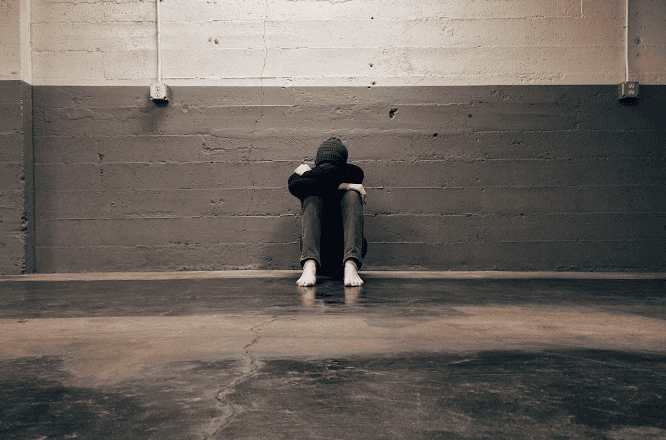This article delves into the the complex network of psychological factors contributing to mental health, and mental health disorders.
Millions of people worldwide suffer from a wide range of mental health illnesses that influence their ideas, feelings, and behaviors. Numerous, varied, and complicated elements, including biological, environmental, and psychological ones, might contribute to mental health disorders.

Psychological Factors Contributing to Mental Health Challenges
Body perception
According to research, having an unrealistic body image might lead to negative self-perceptions. Based on what we see around us, we persuade ourselves that we should aim for perfection, even if we are aware that nobody is flawless in reality.
We come away with this sense that we are never enough. Although we constantly strive for perfection, we will never quite make it. This creates a negative body image, yet a positive body image can be achieved by striving toward acceptance. Although body image issues are not a recognized mental health diagnosis, they may be a risk factor for mental health issues.
According to some studies about how we feel about our bodies, 21% of individuals reported feeling “satisfied” with their bodies. While unhappiness with one’s physique or looks is more common in young women, body image issues impact both men and women and can persist from childhood into older life.
Studies indicate that the following factors may have an impact on one’s body image and confidence:
- our bonds with our loved ones and friends
- what our friends and family think and say about our body and looks
- exposure to media or social media images of idealized or unrealistic bodies
- pressure to conform to a given appearance or ‘ideal’ body type
Further problems with body image and mental health can also be brought on by certain societal variables, such as:
- chronic medical issues
- ethnic variations in ideal body types
- sexual orientation and gender
Stress
Our bodies’ reaction to pressure is stress. It is frequently set off when we go through something novel or unexpected that puts our sense of self in danger or when we believe we have little control over an event.
Everybody handles stress differently. Our personality, early experiences in life, genetics, and societal and economic conditions can all affect our capacity for coping.
This stress reaction can be beneficial at times. It can assist us in overcoming discomfort or fear so that, for example, we can give a speech or run a marathon. After a stressful experience, our stress hormones soon return to normal and have no long-term repercussions. But much stress might have negative consequences. It can put us in a constant state of fight-or-flight, leaving us helpless or incapable of handling things. Our emotional and physical health may be impacted in the long run by this.
Stress can result from several circumstances, including divorce or separation, job loss, bereavement, and unforeseen financial difficulties. Your mental health may suffer as a result of work-related stress and headaches. Individuals who experience stress at work miss an average of 24 days of work as a result of illness.
Stress can arise from even good life changes, including getting a promotion, upgrading to a larger home, or taking a vacation.
If the stress is persistent, you can have changes in your food habits, sleep, and memory, or motivation to exercise. Additionally, several studies have connected long-term stress to heart disease and gastrointestinal disorders. Do not hesitate to get expert assistance if you are still feeling overburdened by stress, such as going to an inpatient mental health center and discussing your feelings with a professional. It does not imply that you are unworthy.
You must seek assistance as soon as possible to improve your condition. They might be able to offer you treatment recommendations and put you in touch with other resources. They also might recommend discussing therapy.
Trauma
Events that put you or a loved one in danger of grave injury or death are considered traumatic. Our normal coping mechanisms become overwhelmed, which makes us feel unsafe and afraid.
Trauma can come to us through:
- one-time incidents like a car accident, violent crime
- or natural disaster recurring – stressors including bullying, abuse in childhood or from romantic partners, chronic sickness, or a pandemic
- witnessing another person suffer harm
Your level of strength has nothing to do with how trauma affects you. Your response may vary depending on other stressors in your life, whether you have experienced trauma in the past, and the level of help you receive in the aftermath. Our bodies adapt to distressing events by getting us ready to react. There is no control over this basic survival mechanism.
Physical symptoms include a speeding heartbeat, racing thoughts, shallower, faster breathing, sharper vision, nausea, chilly hands, trembling, or dizziness. All of these help your body respond to danger, but if you don’t understand why they’re occurring, they may be unsettling or terrifying.
You may be more susceptible to mental health issues after experiencing trauma. Additionally, post-traumatic stress disorder (PTSD) may be directly caused by it. Some people abuse drugs, alcohol, or self-harm as a coping mechanism for painful memories and feelings.
Depending on how it affects you, trauma might make life tough for you daily. For instance, it could be more difficult to trust others, which could make friendships and partnerships more difficult to sustain. It could be difficult for you to take care of yourself, maintain a job, or enjoy activities you used to enjoy. It’s possible that you struggle to control your emotions and that your mind is reacting to memories of past experiences rather than the present circumstances, which could make you feel irrational.
Discrimination
Discrimination and stigma exacerbate the struggles of many people. The media, employers, society, and even our friends and family can be the source of it. Internalized stigma is a possibility, in which case you start to believe unfavorable messages or preconceptions about yourself. Almost 90% of individuals with mental health issues claim that stigma and discrimination negatively impact their lives.

It is well known that among all groups with a chronic illness or disability, those with mental health issues are among the least likely to obtain employment, maintain a stable, long-term relationship, reside in a decent home, and integrate socially into society at large.
There is a connection between mental illness and social isolation, substandard housing, unemployment, and poverty. So, prejudice and stigmatization can keep people stuck in a vicious cycle of sickness.
There are various forms of stigma that one may encounter, such as discrimination based on one’s ethnicity, gender, sexual orientation, or handicap. There are numerous justifications for this discrimination, such as:
- Prejudices. Stereotypes about mental illness can exist in society. It’s a common misconception that individuals with mental health issues are dangerous, but in reality, they are more likely to suffer self-harm or be attacked than to harm others.
- Media. Media stories frequently associate mental illness with violence or depict those who suffer from mental illness as dangerous, criminals, wicked, or severely crippled, making it impossible for them to lead regular, fulfilling lives.
Encouraging someone to talk about their feelings without feeling guilty or stigmatized could have a profound impact. It’s critical to address the stigma you experience if you have any suspicions about a problem. You could waste time trying to help them if you just wait and hope they come to you.
An individual’s mental health outcomes can be influenced by a variety of factors, including their upbringing, experiences, family, and environment. Mental health is a complicated topic.
Improving mental health and well-being can be facilitated by being aware of and taking action against these variables. The general quality of life and mental health can be enhanced by fostering good attitudes toward mental health, lowering stigma, and obtaining assistance from mental health management groups.


